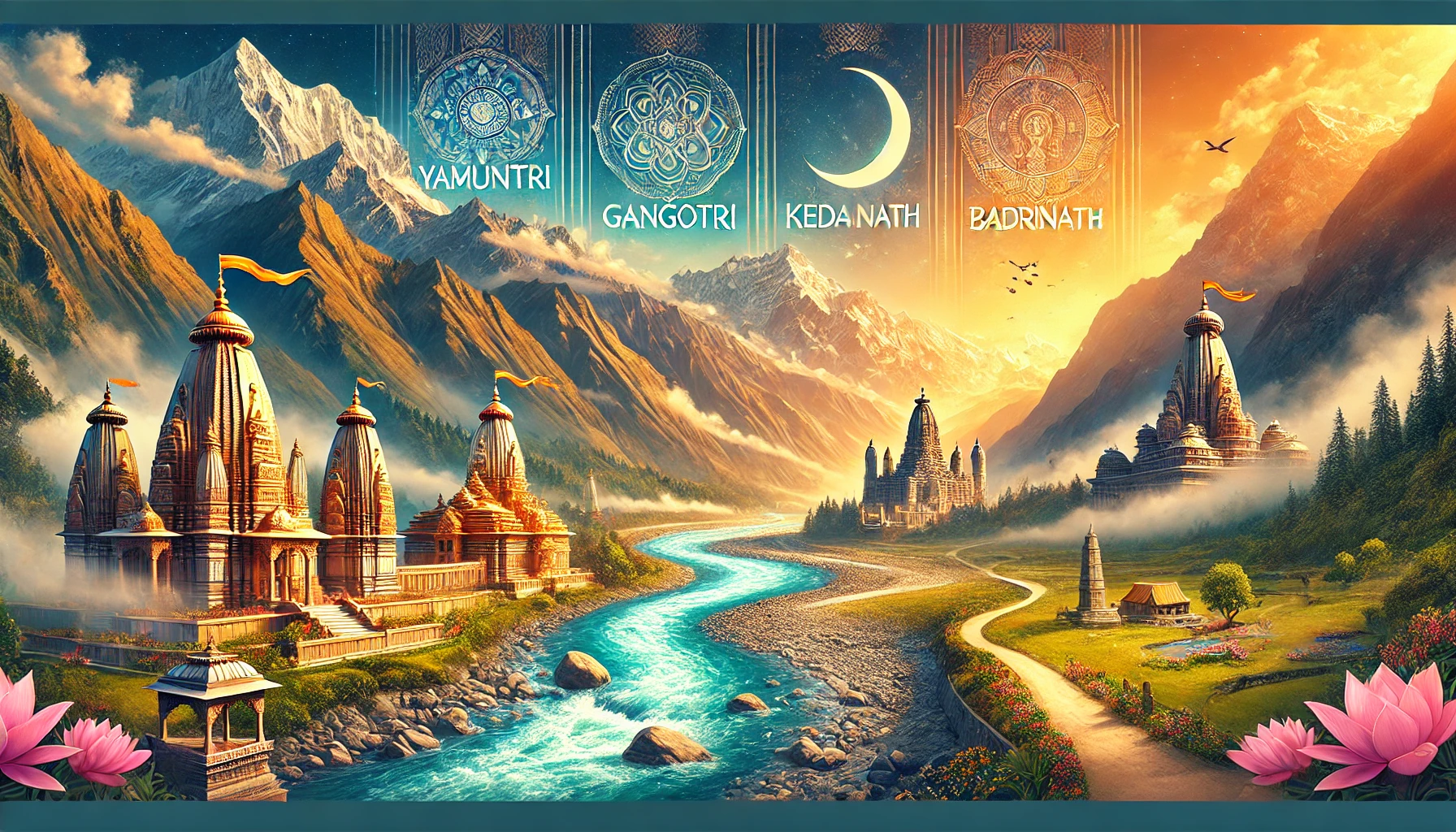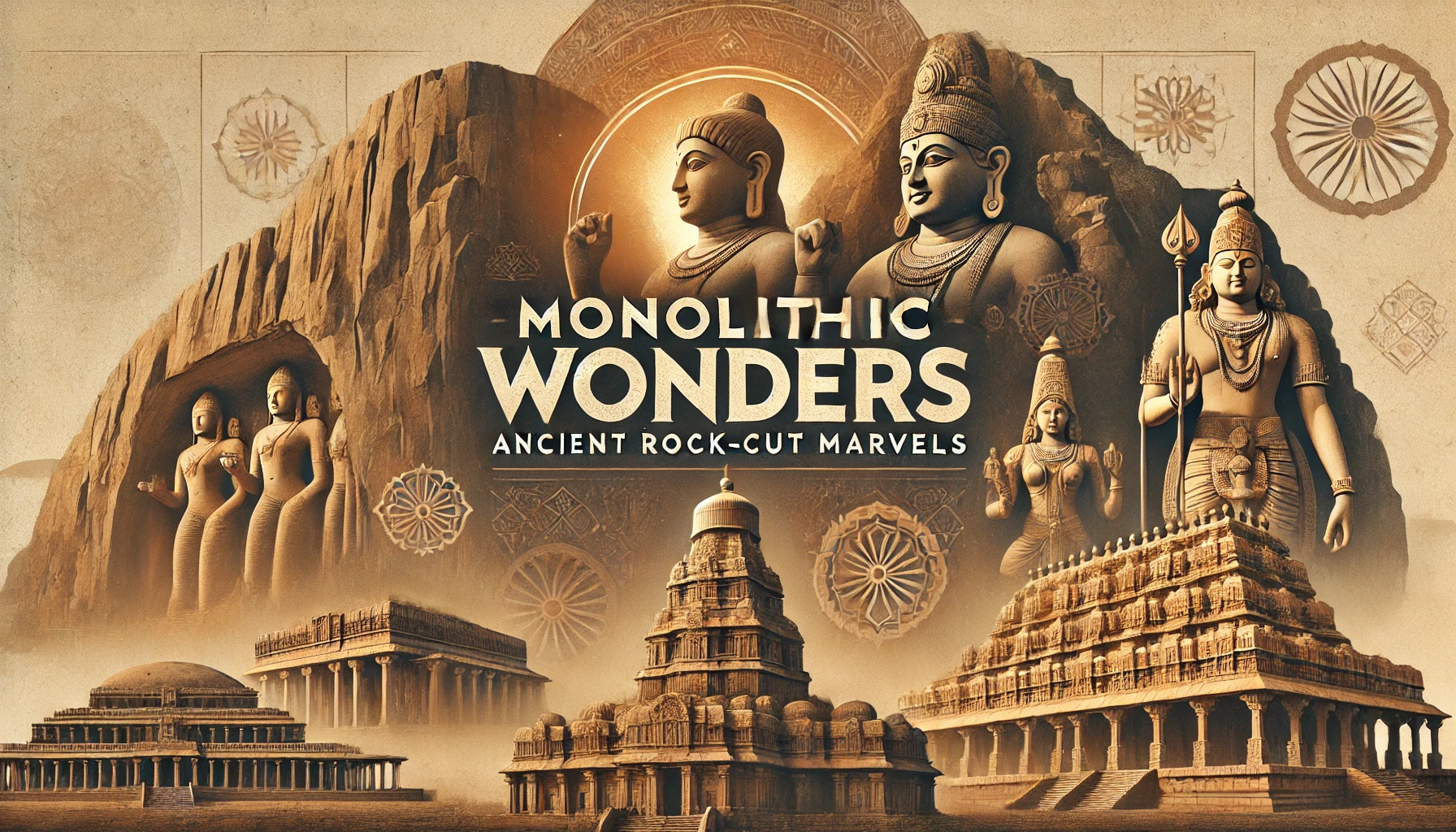The Char Dham Yatra, revered as one of the most sacred pilgrimages in India, encompasses four holy sites: Badrinath, Kedarnath, Gangotri, and Yamunotri. Nestled in the mighty Himalayas of Uttarakhand, this yatra represents a spiritual journey that promises both divine blessings and breathtaking experiences.
Let us take you on a detailed exploration of the Char Dham Yatra, complete with essential travel tips, spiritual significance, and detailed route guidance.
What is Char Dham Yatra?
The Char Dham Yatra refers to the pilgrimage to four sacred shrines in Uttarakhand. Hindus believe this yatra cleanses the soul and paves the way for salvation (moksha). The journey is a blend of devotion, adventure, and nature, attracting thousands of devotees and travelers each year.
The four dhams include:
- Yamunotri: Dedicated to Goddess Yamuna, this site is the starting point of the yatra.
- Gangotri: The origin of the sacred River Ganga, worshiped as Goddess Ganga.
- Kedarnath: A renowned shrine of Lord Shiva, part of the Panch Kedar.
- Badrinath: Dedicated to Lord Vishnu, completing the spiritual circuit.
Spiritual Significance of Char Dham Yatra
The Char Dham represents the spiritual sources of India’s holiest rivers: Yamuna, Ganga, Mandakini, and Alaknanda. Devotees believe that visiting these shrines in a single trip absolves sins and ensures salvation. Adi Shankaracharya, an 8th-century philosopher, played a pivotal role in popularizing the yatra.
Best Time to Undertake the Char Dham Yatra
The Char Dham Yatra season typically spans from April to November, depending on weather conditions. Here’s a breakdown of the seasons:
- Summer (April to June): The most popular time with pleasant weather.
- Monsoon (July to September): While beautiful, heavy rains may cause landslides and slippery paths.
- Autumn (October to November): Crisp air and fewer crowds make this an excellent time for the yatra.
How to Plan Your Char Dham Yatra
1. Preparing for the Journey
- Fitness: The yatra involves treks; ensure you are physically prepared.
- Permits: Register for the yatra online or at designated centers.
- Clothing: Pack warm clothes, waterproof gear, and sturdy shoes.
- Essentials: Carry a first aid kit, energy bars, and medicines.
2. Choosing a Route
Traditionally, the Char Dham Yatra begins from the west (Yamunotri) and moves eastward (Badrinath).
- Yamunotri → Gangotri → Kedarnath → Badrinath
This route symbolizes the spiritual journey from sin to salvation.
Travel Options for Char Dham Yatra
By Air
The nearest airport is Jolly Grant Airport in Dehradun. Helicopter services are available for faster travel between dhams.
By Train
Rishikesh and Haridwar are the closest railway stations. From there, buses and taxis are available.
By Road
Well-connected roads lead to all four shrines. State-run buses and private taxis are common transport modes.
Details of Each Dham
Yamunotri
- Significance: The origin of the Yamuna River, believed to be a manifestation of Goddess Yamuna.
- Highlights: Yamuna Temple, Surya Kund (hot water spring).
- Access: 6 km trek from Janki Chatti.
Gangotri
- Significance: The birthplace of the Ganga River, considered the lifeline of India.
- Highlights: Gangotri Temple, Bhagirathi Shila, and the Ganga Aarti.
- Access: A direct motorable route to Gangotri town.
Kedarnath
- Significance: Home to one of the 12 Jyotirlingas of Lord Shiva.
- Highlights: Kedarnath Temple, Bhairavnath Temple, and snow-clad peaks.
- Access: A challenging 16 km trek from Gaurikund or helicopter services.
Badrinath
- Significance: A shrine dedicated to Lord Vishnu and part of the original Char Dham.
- Highlights: Badrinath Temple, Tapt Kund, and Neelkanth Peak.
- Access: Well-connected by road; helicopter services available.




Char Dham Yatra Packages
Tour operators offer comprehensive packages, including transportation, accommodation, and meals. Helicopter packages are available for a luxurious experience. Choose a package that suits your budget and preferences.
FAQs
The journey typically takes 10-12 days, depending on the mode of transport and weather conditions
There are no strict age restrictions, but individuals must be physically fit to endure the journey.
Pilgrims can choose from dharamshalas, budget hotels, or deluxe accommodations. Booking in advance is advisable.
The temples remain closed in winter due to snow, but idols are moved to nearby locations for worship.
Costs vary based on the mode of transport, accommodation, and services, ranging from ₹20,000 to ₹50,000 per person.
Yes, but group travel is recommended for safety and support during the journey.
Conclusion
The Char Dham Yatra is more than a spiritual journey. It is an exploration of India’s rich cultural and natural heritage. Whether you are seeking divine blessings, solace in nature, or a transformative adventure, this pilgrimage promises an unforgettable experience.
Plan your journey with care. Stay mindful of the environment. Immerse yourself in the divine aura of the Char Dham.
Suggestions



